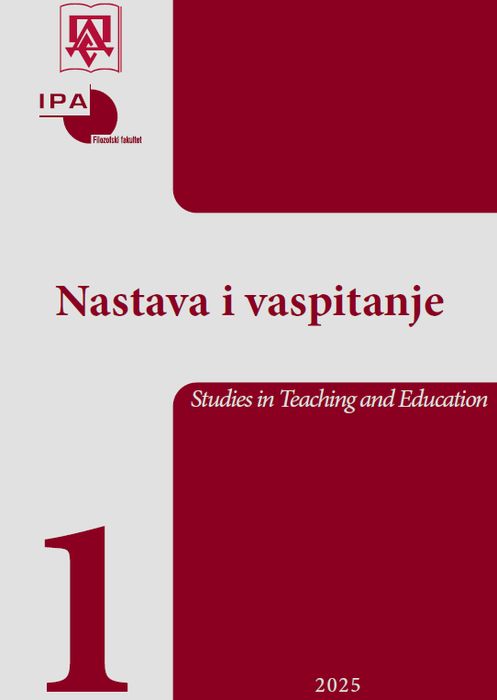Školska klima kao prediktor
samoefikasnosti nastavnika u školama
za učenike sa smetnjama u razvoju
School Climate as a Predictor of Teacher Self-Efficacy
in Schools for Students with Developmental Disabilities
Author(s): Vesna Žunić Pavlović, Svetlana Kaljača, Miroslav PavlovićSubject(s): Education
Published by: Педагошко друштво Србије
Keywords: teachers; self-efficacy; school climate; special education;
Summary/Abstract: Teacher self-efficacy is crucial for the quality and outcomes of education and positively impactsthe well-being of both students and teachers in the school environment. Among numerousfactors associated with teacher self-efficacy, school climate plays a significant role. This study aims todetermine the relationship between school climate and teacher self-efficacy in schools for students withdevelopmental disabilities and impairments. The sample includes 150 teachers from five secondary schoolsfor students with developmental disabilities in various cities across Serbia. Data were collected using theRevised School Level Environment Questionnaire (Revised SLEQ) and the Ohio State Teacher Efficacy Scale(OSTES). The results indicate that the regression model is significant and explains 13.0% of the variance(R² = 0.13, F(4, 139) = 5.19, p = 0.001). Relationships with students emerged as the only significant predictor of teacher self-efficacy (β = 0.24, p = 0.004). These findings contribute to understanding the connectionsbetween specific domains of school climate and teacher self-efficacy. The discussion addresses the implications of these findings for the professional development of teachers in schools for students with developmental disabilities.
Journal: Nastava i vaspitanje
- Issue Year: 74/2025
- Issue No: 1
- Page Range: 69-86
- Page Count: 19
- Language: English, Serbian

